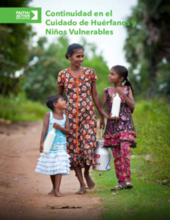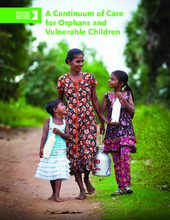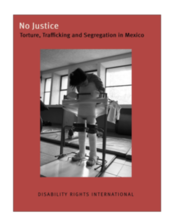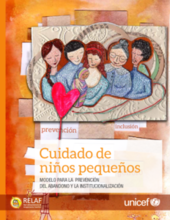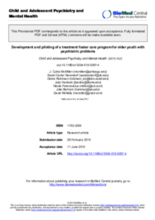Displaying 1081 - 1090 of 1510
This interpretive study examines the experiences of 54 Ethiopian emerging adults who had aged out of institutional care facilities.
Esta guía es la tercera publicación en una serie producida por the Faith to Action Initiative (Iniciativa de Fe en Acción) para proporcionar a las iglesias, a las organizaciones basadas en la fe, e individuos de fe con información para ayudar a guiar la “mejor práctica”. La guía proporciona una visión general de una gama de opciones de cuidado alternativo para los niños que han sido separados del cuidado parental.
A Continuum of Care provides an overview of a range of alternative care options for children who have been separated from parental care.
This report from Disability Rights International (DRI) outlines the findings from a two-year investigation into the treatment of children and adults with mental disabilities in Mexico City, particularly those in the care of state-funded and private residential facilities.
This chapter from the book 'Rutter's Child and Adolescent Psychiatry' focuses on foster care and residential care practices around the world and the benefits and challenges of supporting foster care interventions, transitioning away from the use of institutional care.
Using structural equation modeling the present study analyzed the associations between quality of sibling relationship and self-concept of institutionalized adolescents, testing the mediating role of resilience in this association, and the moderating effect of the maintenance of contact between siblings.
This paper reports on the development and piloting of a manualized treatment foster care program in the US designed to step down older youth with high psychiatric needs from residential programs to treatment foster care homes.
This post on the Missions Dilemma website features an article and 30 minute documentary film on the harmful impact of institutionalization on children.
This study examined psychopathology at age 12 years in a cohort of Romanian children who had been abandoned at birth and placed into institutional care, then assigned either to be placed in foster care or to care as usual.

